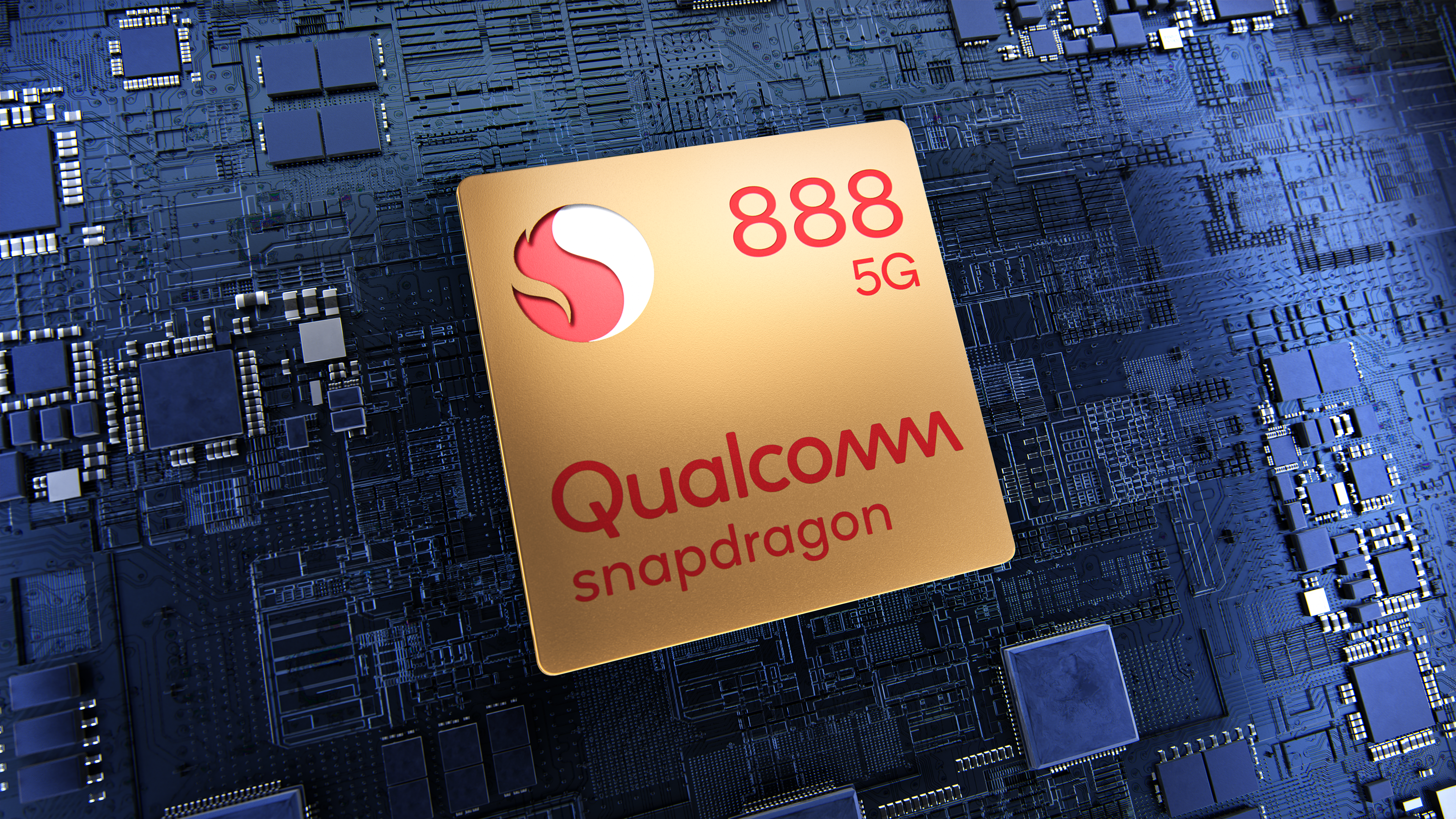In the ever-evolving landscape of technology, the AI chips market has emerged as the epicenter of innovation, steering transformative advancements across diverse industries. The AI chips market is witnessing a high-stakes race, with major players like Intel, AMD, and Nvidia vying for supremacy. AMD, traditionally known for CPUs and GPUs, has recently entered the AI arena with its advanced GPU, the MI300X. This move challenges Nvidia’s dominance, prompting a seismic shift in the accelerated computing landscape.
At Intel’s recent AI Everywhere event, the tech giant unveiled a range of new processors designed to power AI applications across the data center, cloud, edge, and even personal computers. This marks a significant step in Intel’s AI ambitions, challenging the current leader, Nvidia, and reasserting its position as a major player in the future of computing.
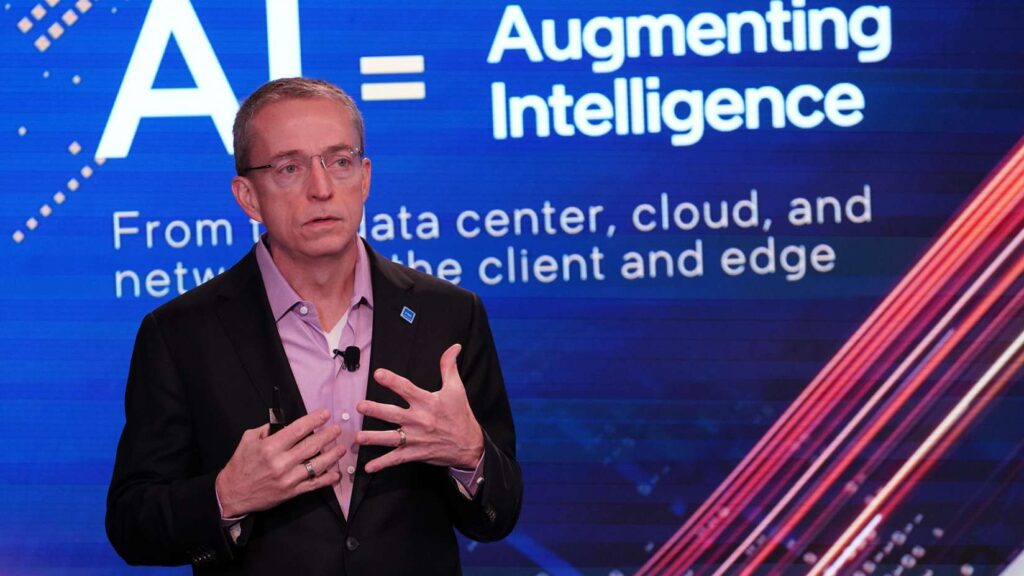
Asserting the transformative potential of AI, and its projected impact on the global digital economy, Intel CEO Pat Gelsinger said, “AI innovation is poised to raise the digital economy’s impact up to as much as one-third of global GDP. Intel is developing the technologies and solutions that empower customers to seamlessly integrate and effectively run AI in all their applications – in the cloud and, increasingly, locally at the PC and edge, where data is generated and used.”
Intel aims to capitalize on their vast manufacturing scale and existing partnerships with major PC makers like Dell and Lenovo.

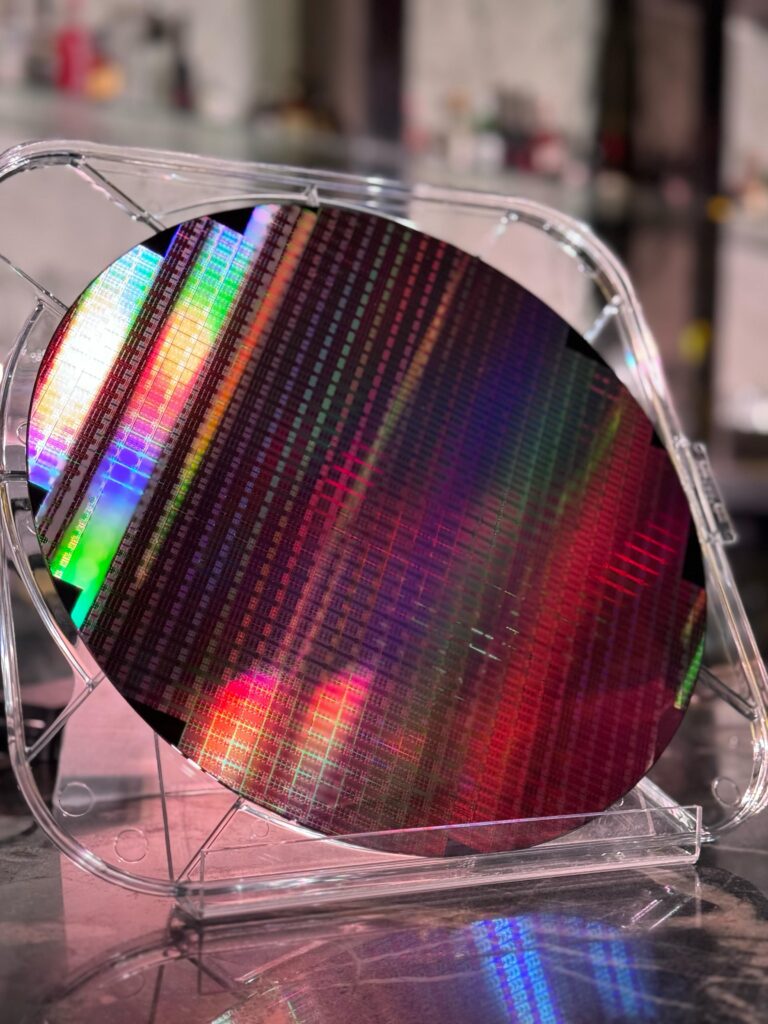
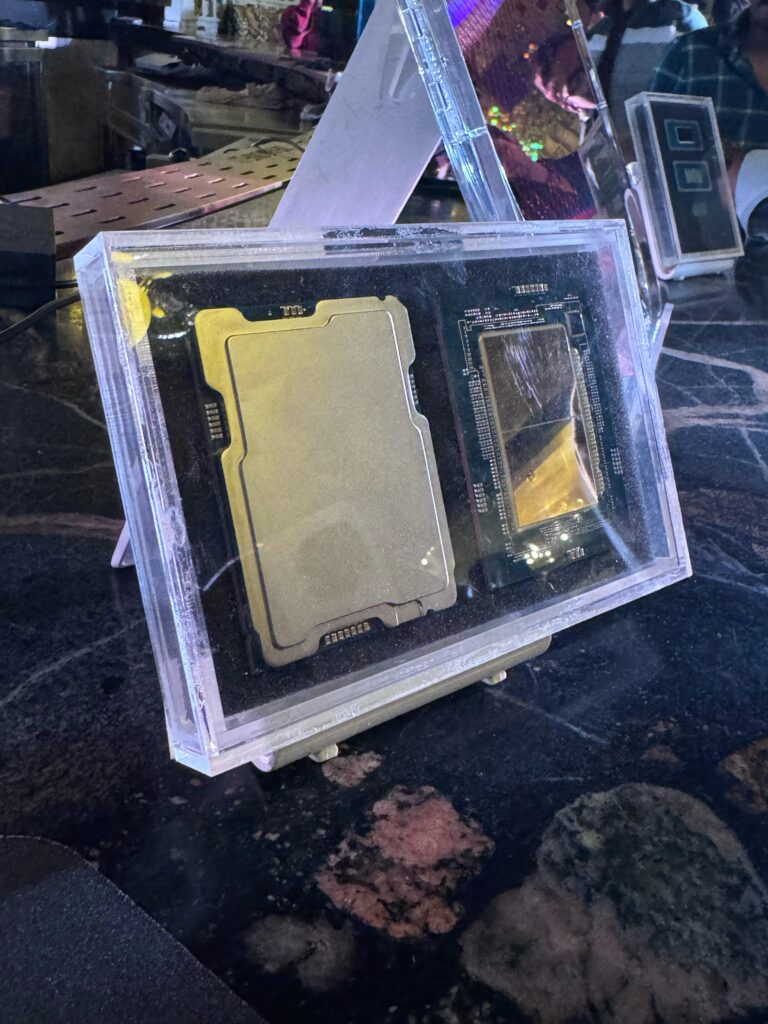
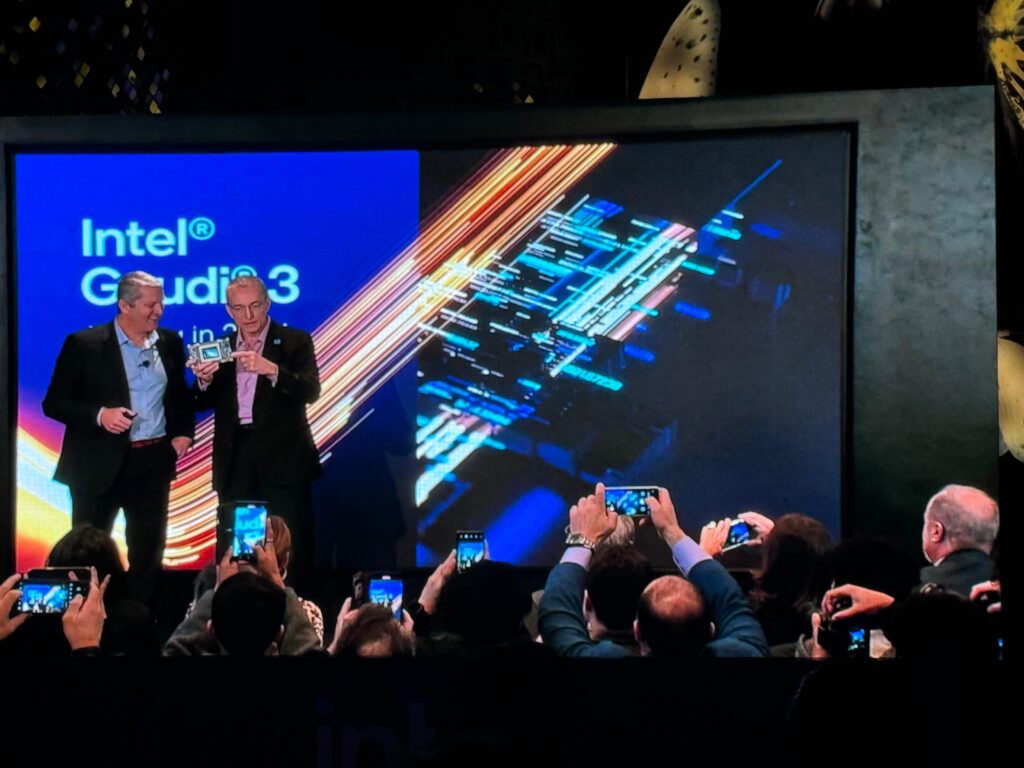
Intel Core Ultra: Revolutionizing AI-Powered PCs
Intel’s latest innovation, the Intel Core Ultra, represents a significant architectural shift after four decades. This AI-centric processor marks a new era for AI-powered PCs and applications. It integrates CPU computing, graphics, power efficiency, and battery life advancements, introducing cutting-edge AI features.
The Core Ultra, equipped with Intel’s first client on-chip AI accelerator (NPU), achieves an impressive 2.5 times better power efficiency for AI acceleration than its predecessor. With over 100 software vendors as partners, Intel plans to bring a diverse range of AI-boosted applications to the PC market, anticipating that AI PCs will dominate 80% of the market by 2028. This translates to an expanded and more comprehensive array of AI-boosted applications that will perform exceptionally well on the Intel Core Ultra, particularly when compared to rival platforms, benefiting both consumer and commercial customers.
5th Gen Xeon Processor Family: Powering the Data Center Revolution
Intel’s revamped Xeon server chips, constituting the 5th Gen Xeon processor family, aim to redefine performance and efficiency across various computing environments. Boasting a remarkable 21% average performance gain for general computing, these processors enable a 36% higher average performance per watt. Opting for the upgrade to the 5th Gen Xeon can lead to a significant 77% reduction in the total cost of ownership (TCO) for customers following a standard five-year refresh cycle.
The 5th Gen Xeon is not only a powerhouse in data centers but also a key player in AI acceleration. With up to 42% higher inference and fine-tuning capabilities on models as large as 20Bn parameters, Intel positions the Xeon as a unique solution for AI workloads.
Gaudi 3 AI Accelerator: The Future of Deep Learning
Intel’s commitment to AI innovation extends to the upcoming Gaudi 3 AI accelerator, designed for deep learning and creating large-scale generative AI models. Intel’s Gaudi AI accelerator family has grown rapidly, driven by its competitive performance and total cost of ownership (TCO) advantages. This accelerator, set to debut in 2024, aims to challenge industry-dominating products and secure a significant share of the AI accelerator market.
Intel’s Expansive AI Footprint: A Mission to Bring AI Everywhere
Pat Gelsinger emphasized Intel’s mission to bring AI everywhere through exceptionally engineered platforms, secure solutions, and support for open ecosystems. The company’s expansive AI footprint spans cloud and enterprise servers, networks, volume clients, and ubiquitous edge environments. Intel’s sheer scale and production capacity, according to Gelsinger, are what set it apart, allowing it to democratize access to advanced AI chips.
Beyond Hardware: Building an AI Ecosystem
Beyond raw chips, Intel’s AI ambition unfold into a full-fledged ecosystem. This includes Intel oneAPI, a programming bridge across their hardware, DevCloud for convenient testing, and collaborations with giants like Microsoft and Google. This one-two punch simplifies development and fuels AI adoption for all.
Conclusion: Shaping the Future of AI
In a rapidly evolving landscape, Intel’s bold moves in AI chips are setting the stage for a transformative era. From revolutionizing AI-powered PCs to powering the data center revolution and paving the way for deep learning with Gaudi 3, Intel is asserting its leadership in the age of AI.
As the industry continues to embrace the potential of AI everywhere, Intel’s vision and innovative strides promise to shape the future of accelerated computing.
